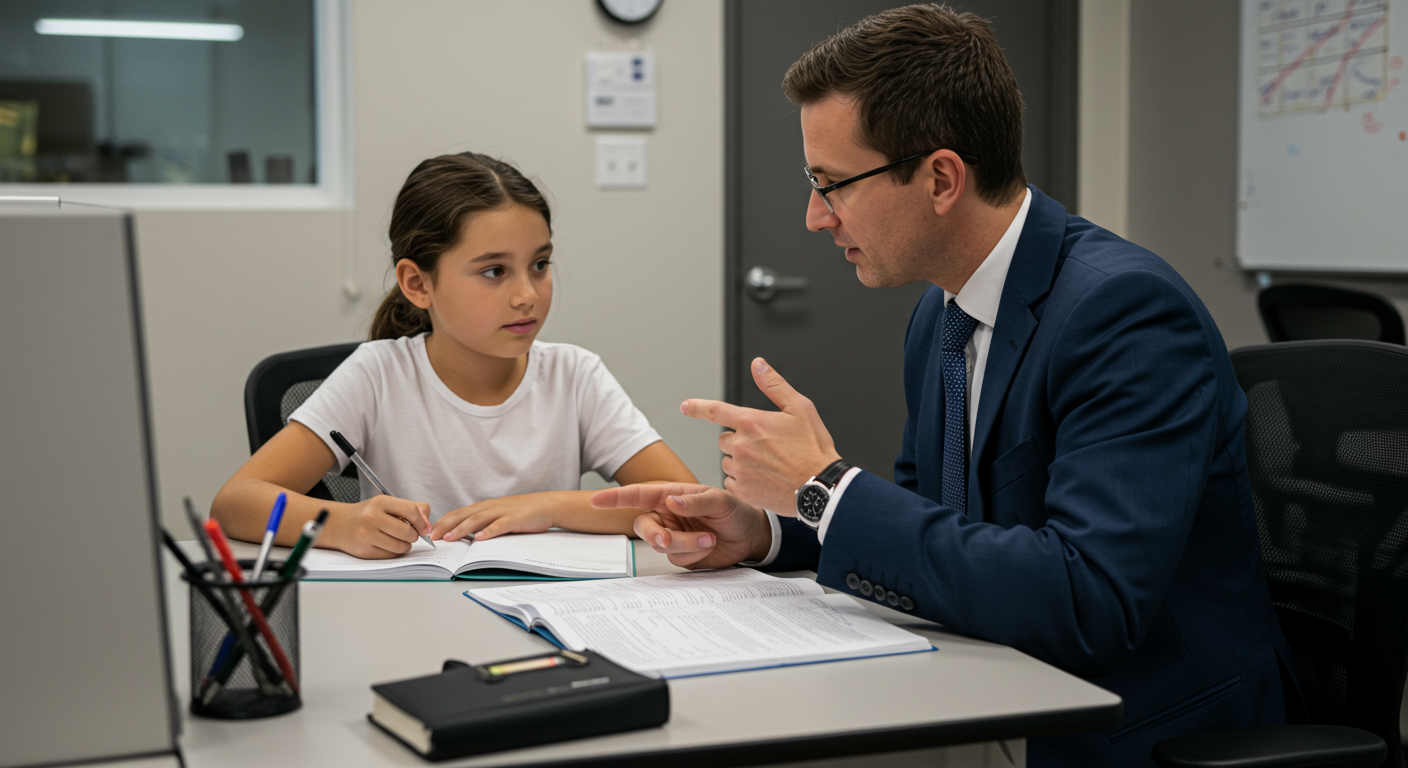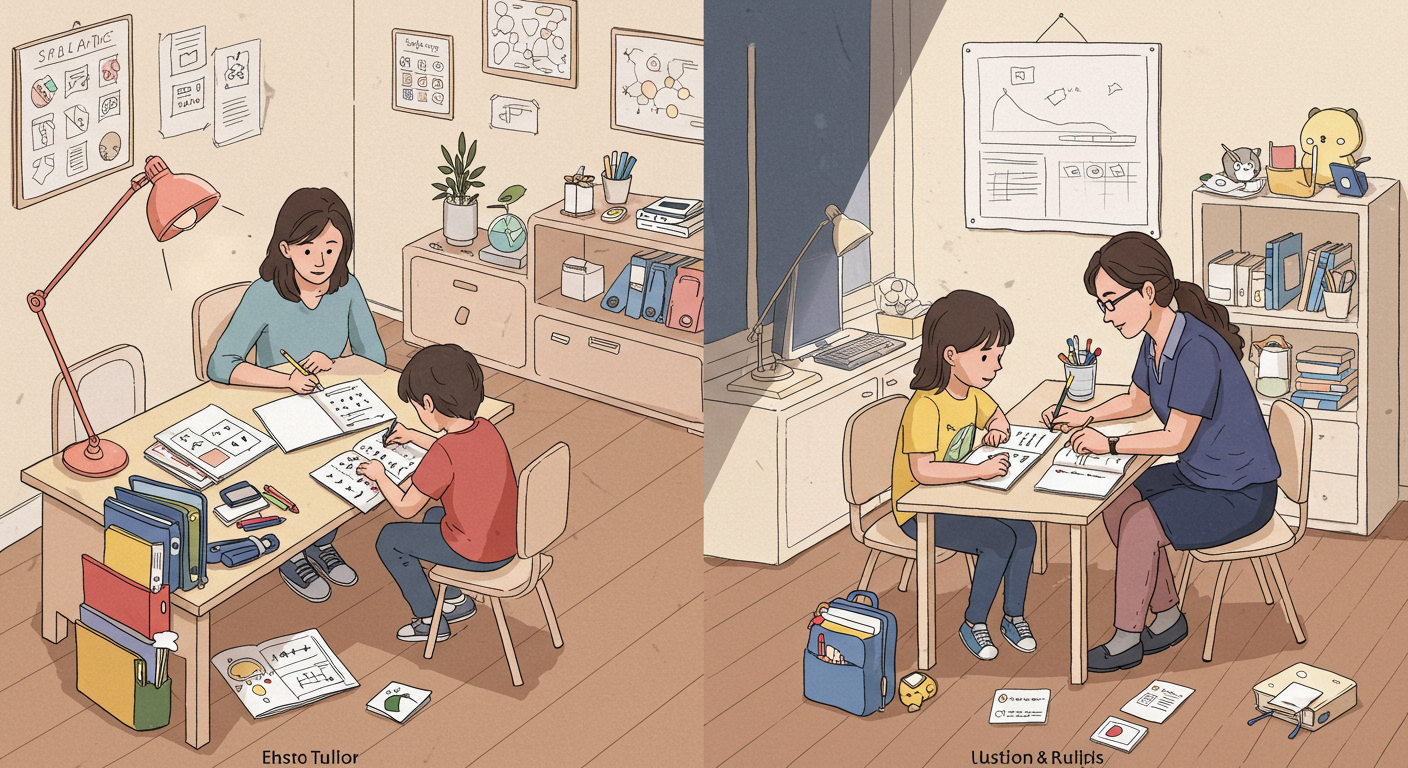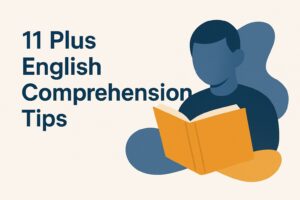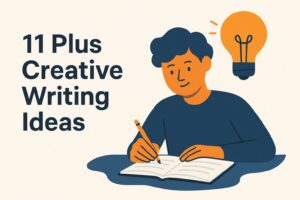
Do I Need an 11 Plus Tutor for My Child—or Can I Do It Myself?
If your child is preparing for the 11 Plus exam, you’ve probably asked yourself this question:
“Do I need an 11 Plus tutor—or can I handle it myself?”
Some families commit to private tutors early on, starting in Year 4 or even before. Others take a do-it-yourself approach, using books, apps, and online resources to guide their child through the process. And then there are those trying to balance somewhere in between—unsure whether going solo is enough, or whether tutoring is really worth the cost.
The truth is, both paths can work—but one may suit your child, your routine, and your confidence more than the other. In this guide, we’ll break down what a tutor actually offers, how they can increase the chances, when they’re most helpful, and how to know if you can manage the 11 Plus prep yourself with the right tools and mindset.
What Does an 11 Plus Tutor Actually Do?

A good 11 Plus tutor offers more than just subject knowledge. Their role is to bring structure, strategy, and targeted feedback to a process that’s often unfamiliar to both parents and children.
Structured Guidance Through the Syllabus
The 11 Plus isn’t just a harder version of SATs—it introduces question types most children have never encountered in school. Verbal and non-verbal reasoning, in particular, require specific strategies and logic patterns that aren’t taught in the national curriculum.
Tutors create a roadmap that:
-
Covers all exam areas systematically
-
Builds from foundational skills to advanced techniques
-
Paces content to avoid overwhelm or burnout
-
Aligns with the specific exam board (GL, CEM, ISEB, or school-specific)
This structure helps prevent last-minute panic and ensures that every topic gets the right attention over time.
Builds Exam Technique and Time Management
Even bright children can underperform in the 11 Plus without the right technique. Tutors help students:
-
Learn how to skim and scan texts effectively
-
Practice eliminating wrong answers in reasoning questions
-
Develop timing strategies for high-pressure papers
-
Build “test stamina” across longer sessions
These techniques aren’t always intuitive. A tutor’s ability to model and rehearse them regularly can make a measurable difference—especially for children who panic under time pressure or get stuck on tricky questions.
Offers Feedback and Accountability
One of the biggest advantages of having a tutor is real-time feedback. They don’t just mark a paper—they spot patterns:
-
Is your child making careless mistakes under time constraints?
-
Are they misunderstanding question wording?
-
Are they consistently weak in a specific reasoning style?
A tutor can diagnose and address these issues before they become ingrained. They also provide accountability—which is key for children who need an outside presence to stay motivated and consistent.
When a Tutor Might Be the Right Choice

Not every family needs a tutor. But for some, it’s the most practical and effective way to ensure solid preparation. Here are signs that a tutor might be the best fit for your situation.
Your Child Needs More Structure or Motivation
If your child:
-
Struggles to stay focused during at-home sessions
-
Pushes back or refuses to practise with you
-
Needs extra encouragement to complete tasks
…then a tutor may act as a neutral, respected guide. Children often behave very differently with an external adult, and tutors are skilled at keeping sessions productive, even with reluctant learners.
The routine of “Tuesday with my tutor” also creates a rhythm that’s harder to ignore or push aside—something many busy families appreciate.
You’re Short on Time or Confidence
Let’s be honest: preparing your child for the 11 Plus at home takes time. Planning sessions, marking work, explaining tricky concepts, and tracking progress all add up. If your work or home schedule is already stretched, a tutor may offer the consistency you simply can’t provide every week.
Even more importantly, some parents feel unsure about the material itself. Verbal and non-verbal reasoning can be daunting if you’ve never studied them before. A tutor brings that expertise and saves you the guesswork.
You Want Region-Specific Experience
Not all 11 Plus exams are the same. Some schools use GL, others use CEM or bespoke papers. A tutor who has experience in your area will likely:
-
Know the exam board and school-specific quirks
-
Understand what each question type is really testing
-
Provide targeted materials and practice that mirror the real exam
This saves time and ensures your child is preparing for the right format—not wasting energy on question styles they won’t even encounter.
Hiring a tutor is not essential for success in the 11 Plus. Many families manage effective preparation at home—especially when the parent is willing to plan, stay consistent, and adapt their approach based on how their child learns best.
You’re Organised and Comfortable Teaching
If you’re confident explaining core topics like comprehension, grammar, and basic maths—and willing to learn verbal/non-verbal reasoning techniques—you’re already in a strong position. The key to DIY prep is having a plan.
To make it work, you’ll need to:
-
Build a term-by-term schedule that introduces all exam components
-
Choose high-quality resources (books, online platforms, worksheets)
-
Create regular revision cycles to reinforce what’s already been covered
-
Monitor progress and adjust the plan when needed
You don’t need to know everything straight away. But you do need to stay one step ahead and be willing to invest time in your child’s learning.
Your Child Works Well with You
Some children naturally respond better to learning at home. They feel comfortable asking questions, making mistakes, and working at their own pace without the pressure of an outside tutor.
DIY prep may work well if your child:
-
Is receptive to your guidance
-
Can focus without constant nagging
-
Learns well in short, consistent sessions
-
Shows a bit of self-motivation when praised or rewarded
If your child is open to working with you and doesn’t resist the routine, you may not need a tutor at all—just the right materials and patience.
You Use Quality Materials and Stay Consistent
DIY success relies heavily on your choice of resources and your ability to maintain momentum. That means:
-
Practice papers that match the correct exam board (GL, CEM, ISEB, or independent school-specific)
-
Books or platforms that explain concepts clearly, not just test them
-
Tools to track progress, such as score logs or a weekly review
-
Occasional timed practice to build speed and confidence
Consistency is more important than perfection. Daily or near-daily effort beats weekend cramming every time. Even 20–30 minutes a day can lead to major improvement over several months.
Pros and Cons: Tutor vs. DIY at a Glance

Here’s a quick side-by-side comparison to help you decide:
| Aspect | 11 Plus Tutor | DIY Preparation |
|---|---|---|
| Cost | £20–£70+ per hour | Low (just books, apps, time) |
| Time Commitment | Less planning needed for parents | Requires more parent time & planning |
| Structure | Tutor-led sessions with progression | Must be parent-organised |
| Feedback | Expert insight, real-time diagnosis | Self-guided unless supplemented with marking tools |
| Child Motivation | Often more cooperative with tutor | Depends on relationship and consistency |
| Customisation | Region-specific expertise (if local) | May take longer to adjust and refine |
This isn’t about which is better—it’s about which fits. Some parents need hands-off solutions. Others prefer to be deeply involved. Some children thrive with a tutor. Others engage more at home.
The Hybrid Approach: Best of Both Worlds?
If you’re still unsure, consider this: you don’t have to choose just one route. Many families now take a blended approach—DIY for most of the week, with short bursts of external support where needed.
Some examples:
-
Use a tutor once a month to assess progress and guide adjustments
-
Hire a tutor specifically for reasoning sections, while you handle English and maths
-
Do everything yourself, but invest in mock exams with external marking for real-world feedback
This approach gives you cost control, flexibility, and the ability to stay involved while still benefiting from expert insight where it counts.
Final Thoughts: It’s Not About the Method—It’s About the Fit

Whether or not you need an 11 Plus tutor comes down to three things:
-
Your child’s learning style and attitude
-
Your own availability and confidence
-
The quality of structure, consistency, and resources
A tutor is not a guarantee. DIY is not a shortcut. Both can work—and both can fail—depending on how they’re used.
The 11 Plus is about readiness, not perfection. With time, support, and realistic expectations, your child can grow into the challenge—whether you bring in a tutor or guide them yourself.
Trust what works for your family. That’s where the real success starts.
Frequently Asked Questions
Is a tutor necessary to pass the 11 Plus?
No, a tutor is not essential. Many children pass the 11 Plus with well-structured home preparation. The key is consistency, access to quality materials, and building up confidence and exam technique over time.
What are the advantages of hiring an 11 Plus tutor?
A tutor provides structure, expert feedback, and accountability. They often understand your local exam board, can tailor sessions to your child’s needs, and help with pacing, reasoning strategies, and mock exam performance.
Can I prepare my child for the 11 Plus on my own?
Yes, especially if you’re organised, have time to guide your child, and use good resources. DIY prep works well when the parent can maintain a consistent schedule and adapt as needed based on progress.
What are the signs that a tutor might be a better fit?
If your child resists working with you, needs external motivation, or you’re unsure how to teach verbal/non-verbal reasoning, a tutor might be a better fit. It’s also helpful if you’re short on time or want regional expertise.
Can I combine both tutoring and DIY?
Absolutely. Many families take a hybrid approach—doing the bulk of practice at home while using a tutor for mock exams, feedback, or to target weak areas. This can reduce cost while still giving access to expert support.



